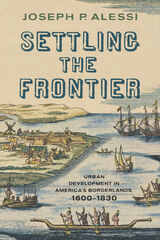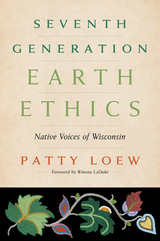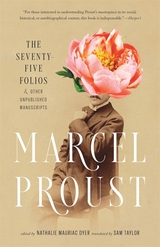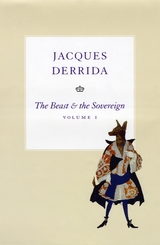
When he died in 2004, Jacques Derrida left behind a vast legacy of unpublished material, much of it in the form of written lectures. With The Beast and the Sovereign, Volume 1, the University of Chicago Press inaugurates an ambitious series, edited by Geoffrey Bennington and Peggy Kamuf, translating these important works into English.
The Beast and the Sovereign, Volume 1 launches the series with Derrida’s exploration of the persistent association of bestiality or animality with sovereignty. In this seminar from 2001–2002, Derrida continues his deconstruction of the traditional determinations of the human. The beast and the sovereign are connected, he contends, because neither animals nor kings are subject to the law—the sovereign stands above it, while the beast falls outside the law from below. He then traces this association through an astonishing array of texts, including La Fontaine’s fable “The Wolf and the Lamb,” Hobbes’s biblical sea monster in Leviathan, D. H. Lawrence’s poem “Snake,” Machiavelli’s Prince with its elaborate comparison of princes and foxes, a historical account of Louis XIV attending an elephant autopsy, and Rousseau’s evocation of werewolves in The Social Contract.
Deleuze, Lacan, and Agamben also come into critical play as Derrida focuses in on questions of force, right, justice, and philosophical interpretations of the limits between man and animal.
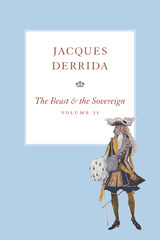

Until September 11th, 2001, few in the West fully appreciated the significance of religion in international politics. The terrible events of that day refocused our attention on how thoroughly religion and politics intermingle, sometimes with horrific results. But must this intermingling always be so deadly? The Sacred and the Sovereign brings together leading voices to consider the roles that religion should—and should not—play in a post-Cold War age distinguished by humanitarian intervention, terrorism, globalization, and challenges to state sovereignty. But these challenges to state sovereignty have deep and abiding roots in religion that invite us to revisit just what values we hold sacred.
Offsetting the commonly shared idea that religion is politics' perennial nemesis, this volume demonstrates that religious traditions, institutions, and ideas are essential elements of the political quest for human rights, peace, order, legitimacy, and justice. The Sacred and the Sovereign brings distinguished scholars of religious studies, theology, and politics together with ranking members of the military and government to reflect seriously about where—and if—safe boundaries can be drawn between religion and politics in the international arena.

Serf, Seigneur, and Sovereign was first published in 1966. Minnesota Archive Editions uses digital technology to make long-unavailable books once again accessible, and are published unaltered from the original University of Minnesota Press editions.
This is a detailed history of the agrarian reforms which took place in Bohemia during the reigns of the Habsburg rulers Maria Theresa, 1740–1780, and Joseph II, 1780–1790. The enactment of the land reforms had far-reaching social, economic, and political effects, and the subject constitutes an important chapter in the history of the nation we now know as Czechoslovakia. The topic has been hardly touched in English, however, and has only recently been properly treated by the Marxist historians of post-World War II Czechoslovakia. Much of Professor Wright's account is based on documents not previously used by historians, particularly materials in the Hofkammerarchiv in Vienna.
The author provides a background by describing the development of serfdom in Bohemia over approximately two hundred years prior to the accession of Maria Theresa to the throne of Austria in 1740. In major sections of the book Professor Wright traces the causes, events, and effects of the program of agrarian reform which Maria Theresa and Joseph II carried out. He shows how the changes in the land system profoundly affected the relationships of the serf, seigneur, and sovereign, and how they paved the way for the much greater social revolution which was to come with the emancipation of 1848.
In addition to providing a wealth of factual information, the account gives a dramatic picture of the plight of the peasant, along with valid glimpses of the personalities of the rulers and their ministers. Specialists in European history, social history, or agrarian history will find the book particularly rewarding.
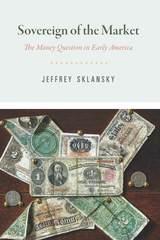
Jeffrey Sklansky’s wide-ranging study comprises three chronological parts devoted to major episodes in the career of the money question. First, the fight over the innovation of paper money in colonial New England. Second, the battle over the development of commercial banking in the new United States. And third, the struggle over the national banking system and the international gold standard in the late nineteenth century. Each section explores a broader problem of power that framed each conflict in successive phases of capitalist development: circulation, representation, and association. The three parts also encompass intellectual biographies of opposing reformers for each period, shedding new light on the connections between economic thought and other aspects of early American culture. The result is a fascinating, insightful, and deeply considered contribution to the history of capitalism.
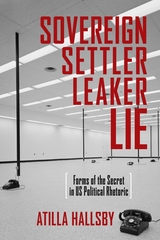
In Sovereign, Settler, Leaker, Lie, Atilla Hallsby argues that secrets play a pivotal role in organizing political discourse in the United States. Hallsby takes up contemporary case studies—ranging from the Valerie Plame scandal during the George W. Bush presidency, to the use of Saul Alinsky’s name as a partisan codeword for politicizing Obama’s Blackness, to Chelsea Manning’s public naming and outing—to show how dramatic revelations increasingly fail to produce meaningful change and instead reproduce entrenched racial, gendered, and colonial hierarchies.
The core feature of these interlinked moments of crisis is the secret: a rhetorical patterning of political life organized by specific forms, each one lending a familiar shape to the shadows of American empire. These forms, theorized here as tropes, connect decades of secrets, linking the George W. Bush administration’s War on Terror to the Trump-era reemergence of “deep state” conspiracy theories. As an extension of secrecy and surveillance studies, and with the aim of attaining a more accountable and just form of US governmentality, Sovereign, Settler, Leaker, Lie explains how still-unfolding political realities in the United States emerged, transformed, and regenerate.
READERS
Browse our collection.
PUBLISHERS
See BiblioVault's publisher services.
STUDENT SERVICES
Files for college accessibility offices.
UChicago Accessibility Resources
home | accessibility | search | about | contact us
BiblioVault ® 2001 - 2025
The University of Chicago Press


